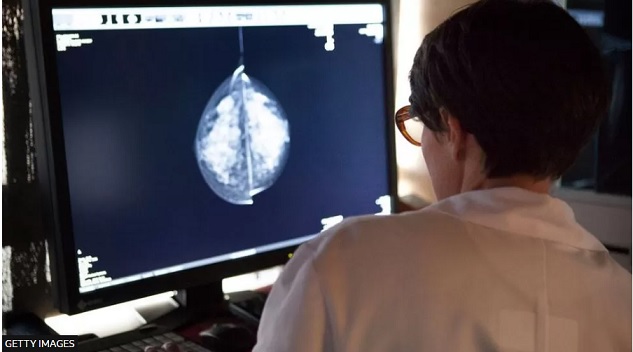
A trial under way at Aberdeen Royal Infirmary is exploring whether artificial intelligence (AI) can assist radiologists in reviewing thousands of mammograms a year.
The pilot helped spot early-stage breast cancer for June - a healthcare assistant and participant in the trial - and she is now set to undergo surgery as a result.
Mammograms are low level X-rays used in breast cancer screenings to monitor and detect changes too small to see or feel.
According to the NHS, they help save about 1,300 lives each year in the UK.
And while the number of women who attended a routine breast screening, after an invitation, increased in Scotland in the three-year period to 2022, the number of radiologists to review results is shrinking.
What is AI?
AI - technology which sees computers perform specific tasks that would typically require human intelligence - is already widely used across a range of industries.
While high-profile experts' fears that AI could lead to the extinction of humanity have recently been making headlines, the tech's more practical realities are already being shown in healthcare.
Its potential to speed up the process of drug and disease discovery means many scientists and doctors see AI as a powerful tool to work with, rather than replace, practitioners.

